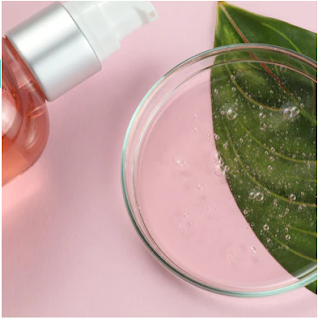Choose the result-driven product Roseship from Clarityrx
Rosehip seed oil is another name for rosehip oil. Rosehip oil is pressed from the fruit and seeds of the rose plant and is sourced from the rosa Canina rose bush, which is primarily farmed in Chile. Rosehip oil, prized since antiquity for its priceless medicinal properties, is brimming with skin-nourishing vitamins and vital fatty acids. Additionally, it has been discovered that phenols have antiviral, antibacterial, and antifungal effects.
As a carrier oil for essential oils that are too potent to apply directly to the skin, rosehip oil is frequently used.
Learn more about the advantages of rosehip oil for skin care and how to incorporate it into your routine by reading on.
1). It is hydrates
For skin that is supple and silky, hydration is crucial. Dehydration can become an issue in hot or dry climates or as skin ages.
Numerous essential fatty acids, such as linoleic and linolenic acid, can be found in rosehip oil. Fatty acids support robust cell walls to prevent water loss.
Rosehip oil is a fantastic choice for moisturizing dry, irritated skin because it contains a variety of fatty acids. Additionally, the oil is quickly absorbed by the skin, allowing its antioxidants to penetrate to the skin's deepest layers.
2). It moisturizes
Your skin's natural hydration as well as any additional oils are locked in by moisturizing.
Rosehips have been linked to various anti-aging benefits, including the capacity to keep skin hydrated, according to a 2015 study trusted Source that used rosehip powder. Researchers discovered that people who consumed rosehip powder orally noticed a considerable improvement in the moisture content of their skin.
Rosehip oil applied topically might also provide you with similar advantages. Rosehip oil is a dry oil that isn't oily. This makes it an excellent all-natural moisturizer.
3). It promotes skin radiance and exfoliation.
Rosehip oil can be used as a natural exfoliant to remove dead skin cells and leave behind beautiful, vivid skin.
Retinol, a kind of vitamin A found in rosehip oil, promotes skin cell renewal.
4). It promotes the production of collagen.
Skin is constructed of collagen. It is necessary for the hardness and flexibility of the skin. As you become older, your body naturally produces less collagen.
Vitamin A, which is essential for the creation of collagen, is abundant in rosehip oil. Rosehip has also been demonstrated to stop the body from producing MMP-1, an enzyme that destroys collagen.
5). It lessens inflammation.
Polyphenols and anthocyanin, which are abundant in rosehips, may help lessen inflammation. Vitamin E, an antioxidant with anti-inflammatory properties, is also present.
6). It provides sunlight damage defense.
Premature aging is largely caused by lifetime solar damage that has accumulated. The body's capacity to make collagen can also be hampered by exposure to ultraviolet (UV) light.
Vitamins A and E and other antioxidants are found in rosehip oil. It has been demonstrated that these vitamins work together to prevent obvious solar damage. They might also aid in avoiding photoaging.
In light of this, rosehip oil may be used to lessen the harmful effects of UV radiation. But you shouldn't use it as a substitute for sunscreen.
7). Using it lessens hyperpigmentation
Excess melanin causes hyperpigmentation, which is the development of dark spots or patches on the skin. This may happen as a result of various things, such as:
8)Sun Exposure
Abnormal changes during pregnancy or menopause, for example
certain pharmaceuticals, such as birth control pills and chemotherapy drugs
Vitamin A is abundant in rosehip oil. Retinoids are one of the nutritional substances that make up vitamin A. With consistent use, retinoids are known for their ability to lessen hyperpigmentation and other obvious symptoms of aging.
It strengthens the immune system.
Antioxidants and polyunsaturated fatty acids, such as linoleic acid, which are essential for preventing the deterioration of skin cell membranes, are abundant in rosehip oil. To stop bacteria from infiltrating the skin and causing breakouts and infections, strong, healthy cells operate as a barrier. Contact us for more product related information
Rosehip powder has been demonstrated to strengthen and prolong the life of skin cells in both human and animal research. Rosehip powder has also been demonstrated to decrease MMP-1 production, an enzyme that destroys collagen-containing cell structures.
Bottom Line
Rosehip oil has a long history as a cosmetic product and medicinal treatment. It is rich in vital fatty acids, vitamins, and antioxidants, all of which are prized for their capacity to hydrate skin.
Anyone wishing to lessen the telltale symptoms of age, eliminate scarring, or generally enhance their skin care regimen may find rosehip oil to be an appealing option as a result of scientific research demonstrating its potential. It is not only simple to use and moderately priced, but it is also widely thought to be safe for all skin types.

Comments
Post a Comment